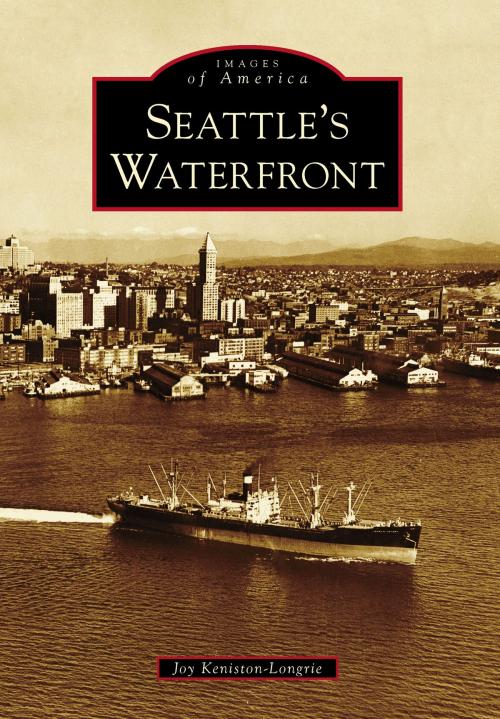| Author: | Joy Keniston-Longrie | ISBN: | 9781439648742 |
| Publisher: | Arcadia Publishing Inc. | Publication: | December 1, 2014 |
| Imprint: | Arcadia Publishing | Language: | English |
| Author: | Joy Keniston-Longrie |
| ISBN: | 9781439648742 |
| Publisher: | Arcadia Publishing Inc. |
| Publication: | December 1, 2014 |
| Imprint: | Arcadia Publishing |
| Language: | English |
Seattle�s waterfront has served as a central hub for people, transportation, and commerce since time immemorial. A low natural shoreline provided the Duwamish-Suquamish people with excellent canoe access to permanent villages and seasonal fishing camps. High bluffs served as a sacred place for tribal members� final journey to the spirit world. When the first settlers arrived in the 1850s, Seattle�s shoreline began to change drastically. Emerald hills covered with dense forests were logged for timber to make way for the new city. As time passed, Seattle constructed a log seawall, wooden sidewalks, wharfs, buildings, streets, railroad trestles, and eventually, a massive concrete viaduct over the original aquatic lands, changing the natural environment to a built environment. Today, Seattle�s shoreline continues to change as the city demolishes the viaduct, rebuilds the seawall, and creates an inviting new waterfront that all will enjoy for generations to come.
Seattle�s waterfront has served as a central hub for people, transportation, and commerce since time immemorial. A low natural shoreline provided the Duwamish-Suquamish people with excellent canoe access to permanent villages and seasonal fishing camps. High bluffs served as a sacred place for tribal members� final journey to the spirit world. When the first settlers arrived in the 1850s, Seattle�s shoreline began to change drastically. Emerald hills covered with dense forests were logged for timber to make way for the new city. As time passed, Seattle constructed a log seawall, wooden sidewalks, wharfs, buildings, streets, railroad trestles, and eventually, a massive concrete viaduct over the original aquatic lands, changing the natural environment to a built environment. Today, Seattle�s shoreline continues to change as the city demolishes the viaduct, rebuilds the seawall, and creates an inviting new waterfront that all will enjoy for generations to come.















